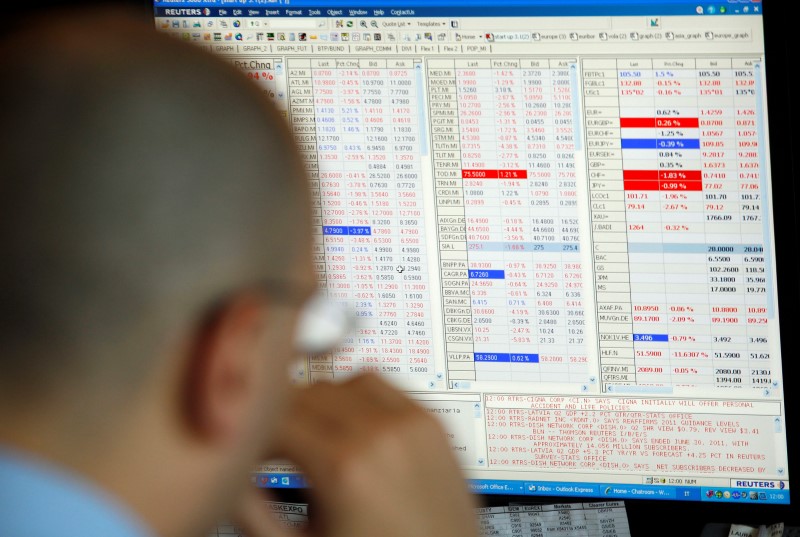This post was originally published on this site
https://i-invdn-com.akamaized.net/news/LYNXMPEA601E0_M.jpg
HONG KONG (Reuters) – China’s healthcare and biotech firms are capitalising on a surge of interest in the sector due to the coronavirus pandemic by raising a record $6.8 billion in fresh equity-linked transactions this year.
While healthcare and related sectors have long been popular, with investors betting that China’s ageing population and growing middle class would boost spending, the virus has raised expectations that Beijing will funnel even more funds into them.
“Because of the epidemic outbreak, the biotech, healthcare industry has been valued more by everyone. People realise that no matter what the economy looks like, patients always need to see the doctor,” said Xia Yu, co-founder and CEO of Chinese biotech firm Akeso Inc.
China’s healthcare expenditure accounted for just 6.6% of its GDP in 2018, compared with 17.7% in the United States, according to official data from the two countries.
“After the virus outbreak, government and society will greatly increase spending on healthcare systems, which will benefit the industry,” said Andy Lin, founding partner of Chinese private equity firm Loyal Valley Capital.
Loyal Valley has been looking into investment in vaccine- and testing-related companies and encouraged portfolio firms like Shanghai Junshi Biosciences to expand into businesses related to tackling the coronavirus, he said.
Chinese biotech and healthcare firms have raised $2.1 billion from IPOs in mainland China, Hong Kong and the United States this year, nearly double the rate this time last year, according to Refinitiv data.
Healthcare-related companies have been a driving force in Hong Kong in particular this year, accounting for 30% of the total $2.78 billion raised via IPOs in the city, Refinitiv data showed.
“It is really the scarcity value. Healthcare right now is probably the most active sector (in the capital markets),” said Cathy Zhang, a managing director at Morgan Stanley (NYSE:MS) and head of healthcare for Global Capital Markets in Asia.
She also attributed investors’ confidence to strong market performance of many biotech firms.
HEAVILY OVERSUBSCRIBED
An index of Hong Kong-listed biotechs has gained 14% so far this year while the benchmark Hang Seng Index has fallen by about 15%.
Akeso, which focuses on oncology and immunology, raised $330 million last month in the city’s largest IPO this year. Other significant transactions include InnoCare Pharma’s $288 million IPO in March and medical devices maker Peijia Medical’s $302 million deal this month.
Both Akeso and Peijia’s offerings were heavily oversubscribed by retail and institutional investors, with the retail tranche being over 600 times and 1,000 times covered, respectively, according to public filings and people close to the deals.
As well as IPOs, investment banks including JPMorgan (NYSE:JPM) and Morgan Stanley are looking to already-listed groups to raise further funds via follow-on share sales and convertible bonds.
“For (pre-revenue) biotech companies, it is very important that you are able to continuously raise money after the IPO… The sector’s stocks have done quite well, so obviously biotech companies want to take advantage of the share price to continue to raise capital,” said Morgan Stanley’s Zhang.
Already-listed firms have raised $3.3 billion in follow-on share sales and $1.3 billion from convertible bonds this year, against $1 billion and $712 million, respectively, by this time last year, showed Refinitiv data.
Some investors and bankers cautioned that despite the rising interest in the sector, many firms might still have to adjust valuations and maintain business growth as the overall economic and market conditions have turned challenging since the virus outbreak.
“It is actually a testing ground for their abilities,” said Nisa Leung, managing partner and leader of healthcare sector at China-based Qiming Venture Partners.

